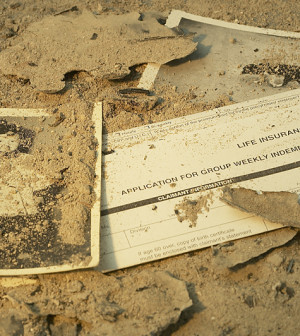- Could Your Grocery Store Meat Be Causing Recurring UTIs?
- Are You Making This Expensive Thermostat Error This Winter?
- Recognizing the Signs of Hypothyroidism
- 10 Strategies to Overcome Insomnia
- Could Artificial Sweeteners Be Aging the Brain Faster?
- Techniques for Soothing Your Nervous System
- Does the Water in Your House Smell Funny? Here’s Why
- Can a Daily Dose of Apple Cider Vinegar Actually Aid Weight Loss?
- 6 Health Beverages That Can Actually Spike Your Blood Sugar
- Treatment Options for Social Anxiety Disorder
Menopause Hastens Aging, Studies Suggest

Menopause, and the insomnia that often goes along with it, can speed aging in women, two new studies suggest.
“For decades, scientists have disagreed over whether menopause causes aging or aging causes menopause,” said Steve Horvath, senior author of both papers.
“It’s like the chicken or the egg: which came first? Our study is the first to demonstrate that menopause makes you age faster,” said Horvath, a professor of human genetics and biostatistics at the David Geffen School of Medicine at the University of California, Los Angeles.
He and his colleagues said they found that menopause boosts cellular aging by an average of 6 percent.
“That doesn’t sound like much, but it adds up over a woman’s life span,” Horvath added in a UCLA news release.
For example, a woman who began early menopause at age 42 would be a full year older biologically at age 50 than a woman that same age who began menopause at age 50.
Insomnia, which often accompanies menopause, can also lead to faster biological aging, according to the second study.
“Not getting restorative sleep may do more than just affect our functioning the next day; it might also influence the rate at which our biological clock ticks,” said Judith Carroll. She is an assistant professor of psychiatry at UCLA’s Semel Institute for Neuroscience and Human Behavior, and first author of the sleep study.
“In the women we studied, those reporting symptoms such as restless sleep, waking repeatedly at night, having difficulty falling asleep and waking too early in the morning tended to be older biologically than women of similar chronological age who reported no symptoms,” she said.
The studies included more than 5,000 women and were published July 25 in the journals Proceedings of the National Academy of Sciences and Biological Psychiatry.
More information
The American Academy of Family Physicians has more about menopause.
Source: HealthDay
Copyright © 2026 HealthDay. All rights reserved.










